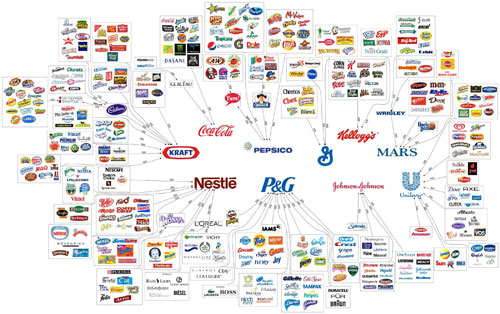But the authoritarianism of this tradition is cloaked most effectively in the power of the marketplace to make it seem freely chosen. Choice is an American article of faith (as the vocabulary of the abortion debate shows; even antiabortion activists use the rhetoric of choice); and we exercise choice, or enjoy the illusion of it, primarily in the marketplace. We choose from myriad brands of toothpaste and paper towels in the belief that they differ and reflect our own desires. We choose personal development experts, absorbing their maxims and techniques and making them our own. (via)
The question here is how we can both a) believe in choice as an inherent good and additionally b) whether one can be fooled into believing that choice exists when it does not?
Let's tackle these questions separately.
Is choice an inherent good?
[caption id="attachment_741" align="alignnone" width="300"]
 Asuka making a choice via[/caption]
Asuka making a choice via[/caption]Choice is not an inherent good. I think this seems most obvious when people are asked to choose between two negative outcomes. Commodification is encouraged when making these decisions.
The choice maker is asked to measure the value of one person's suffering against another person's.
Of course, such a measurement is impossible. To attempt to quantify suffering is an exercise that devalues the strength of the relationships between the person making the choice and the people who face the outcome of that choice. Emotions and harms cannot be balanced against each other, certainly not by fallible human agents.
Let's apply this to a feminist issue.
Sex selection during pregnancy
Societies value male babies over female babies, as they value males over females throughout all levels of society. Due to this, societies have allowed parents to utilize technology to peer into the womb to determine the sex of the fetus. Once the sex is determined, couples may choose to terminate female fetuses.
In determining the sex of the fetus, the ability to make a choice is not an inherent good. Determining the sex of the fetus propagates the commodification of the child as an object-commodity that the father-patriarch may exert control over. The choice is enabled by the father-patriarch's control over the female body and reproductive labor with the assistance of patriarchal medical institutions.
Even attempting to determine the sex of the child before birth allows the family to prepare greater lengths of socialization into the sex-ascribed role of masculine or feminine.
In the standard view, rational choice is defined to mean the process of determining what options are available and then choosing the most preferred one according to some consistent criterion. In a certain sense, this rational choice model is already an optimization-based approach. (Into to Choice Theory)
Choice is not an inherent good. Feminists need to move beyond neo-liberal choice ideology and the traditional rational-choice theory founded by Adam Smith. Choice is not an article of faith for feminists: our sisters and mothers realized the efforts campaigned against us to circumscribe and delimit our choices.
Can one be fooled into believing a choice exists when it does not?
Yes, of course.
Enjoy the illusion of [choice], primarily in the marketplace. We choose from myriad brands of toothpaste and paper towels in the belief that they differ and reflect our own desires. We choose personal development experts, absorbing their maxims and techniques and making them our own. (via)
First, we must consider how the marketplace comes to exist. Are we able to exist outside of the marketplace? Are countries coerced into entering capitalistic free-market exchanges? How does the history of colonialization affect the degree of choice nations have in the market place relationships?

Secondly, we must consider the individual choices. Colonialization, slavery, and economic disenfranchisement pull back the veneer of choice from economic relationships.
Even those who own enough economic capital to make choices will quickly find that the choice between brands is itself an illusion.
 Brand: Illusion of Choice
Brand: Illusion of ChoiceAlthough there appear to be hundreds of brands in the supermarket aisle, the reality is that these are the many arms of a few large entities.
And finally, the absorption of these choices from preset options is a rejection of identity development.
The self-help tradition has always been covertly authoritarian and conformist, relying as it does on a mystique of expertise, encouraging people to look outside themselves for standardized instructions on how to be, teaching us that different people with different problems can easily be saved by the same techniques. It is anathema to independent thought. [...] We should worry about the willingness of so many to believe that the answers to existential questions can be encapsulated in the portentous pronouncements of bumper-sticker books.
A harsh reality is that these answers cannot be encapsulated. Even if the could, part of the value of these answers is found in the process of discovering the answer.
No comments :
Post a Comment